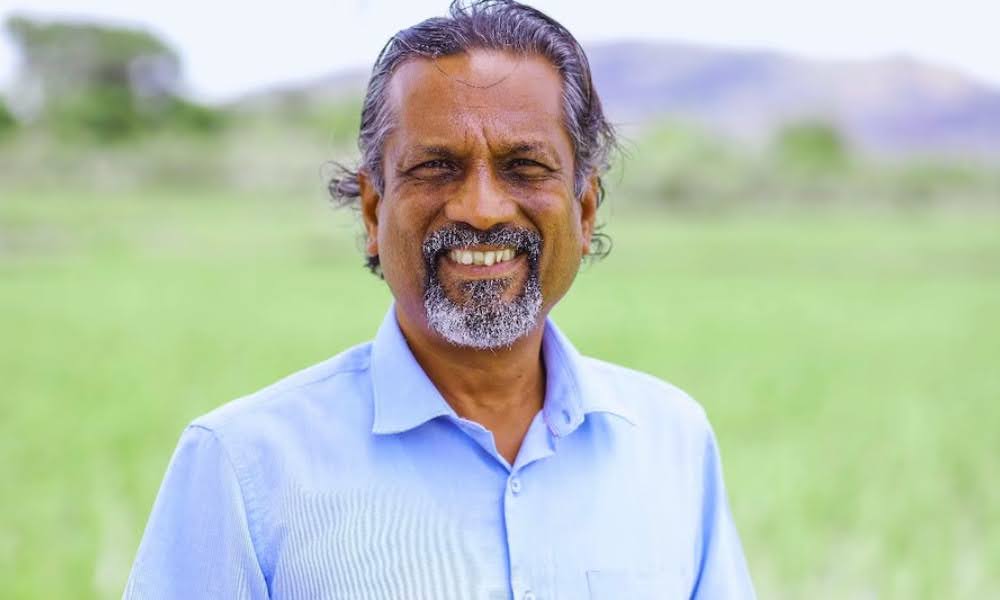Chandrababu Naidu Backs Three-Language Formula, Highlights Benefits of Hindi and English

Andhra Pradesh Chief Minister Chandrababu Naidu addressed the ongoing language controversy on Monday, stressing the importance of learning both Hindi and English while maintaining respect for one’s mother tongue.
Naidu highlighted the practical advantages of knowing multiple languages, particularly for communication and professional opportunities.
“One should give importance to the mother tongue, but at the same time, one needs to learn Hindi as it is useful for communication in Delhi. Other languages we learn for livelihood… Hindi is the national language… English is the international language,” Naidu said, acknowledging the increasing trend of Indians working and traveling abroad.
Naidu’s statement comes amid heated debates in southern states over the Centre’s three-language policy under the National Education Policy (NEP) 2020.
Language for Communication, Not Politics
Naidu emphasized that language should be seen as a tool for communication rather than a political issue.
“Language is only for communication. It does not bring knowledge. Knowledge is learnt best when studied in the mother tongue… mother tongue is easiest to learn. That is the experience anywhere in the world,” he said.
According to Naidu, the ability to speak multiple languages enhances job prospects and improves international communication.
“For livelihood, we will learn any number of languages. We won’t forget mother tongue. Language is only for communication. It is best to learn maximum languages, let us remember,” he added.
Political Tensions Over Language Policy
Naidu’s comments follow resistance from Tamil Nadu’s DMK government against the three-language policy and delimitation, which have been framed as attempts to impose northern domination through language and culture.
The DMK has portrayed the language policy as a means of cultural control, resonating with political groups across the southern states.
The Centre, however, has defended the policy, clarifying that Hindi is one of 22 official languages included in the NEP and is not mandatory.
The central government has also pushed opposition-led states like Kerala, Tamil Nadu, and West Bengal to adopt the policy.
Naidu’s Stance on Language Learning
Naidu underscored the practical benefits of learning multiple languages, citing the increasing number of Indians traveling and working abroad.
He mentioned countries like Japan and Germany, where learning the local language has helped Indian professionals succeed.
“Language is only for communication. Knowledge will not come with language. Only people who study in their mother tongue are excelling across the world. It is easy to learn (through the mother tongue),” Naidu reiterated, advocating for a balanced approach to language learning.
He also defended the three-language policy, saying that knowing multiple languages improves communication and global mobility while reinforcing the cultural importance of the mother tongue.
Pawan Kalyan’s Role in the Language Debate
Naidu’s remarks come shortly after Andhra Pradesh Deputy Chief Minister and Jana Sena Party chief Pawan Kalyan addressed the language row.
Kalyan clarified his position, stating that he opposed the compulsory imposition of Hindi rather than the language itself.
“Either imposing a language forcibly or opposing a language blindly; both don’t help to achieve the objective of national & cultural integration of our Bharat. I had never opposed Hindi as a language. I only opposed making it compulsory. When the NEP 2020 itself does not enforce Hindi, spreading false narratives about its imposition is nothing but an attempt to mislead the public,” Kalyan said.
Kalyan’s comments came after his earlier statement about Hindi and Tamil movie dubbing sparked controversy. He later explained that he supported the three-language policy but opposed making Hindi a mandatory language.
Maintaining Cultural Identity While Embracing Global Opportunities
Naidu stressed that learning new languages should not come at the cost of losing one’s mother tongue or cultural identity.
He argued that studying in the mother tongue provides a deeper understanding of knowledge and that fluency in other languages strengthens global communication and professional success.
Naidu’s balanced view reflects the broader challenge of maintaining cultural identity while adapting to global demands.
“Language is only for communication,” he emphasized, calling on citizens to focus on practical language skills while preserving their cultural roots.
Language Policy and Political Implications
The language debate has become a political flashpoint, especially in southern states.
The DMK’s opposition to the three-language policy has resonated across party lines, with other southern leaders also raising concerns over linguistic and cultural dominance from the north.
Naidu’s comments aim to position Andhra Pradesh as a moderate voice, advocating for language learning as a tool for communication rather than a political issue.
His support for the three-language policy aligns with the BJP-led Centre’s push for linguistic flexibility under the NEP.
At the same time, Naidu’s emphasis on the mother tongue reflects the cultural sensitivity required to navigate the politically charged language issue in southern India.
His stance seeks to strike a balance between embracing global opportunities and preserving linguistic identity.








